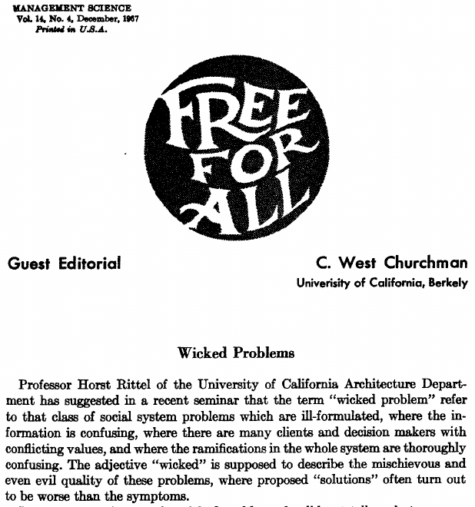It the systems sciences are an open system, then learning more and more about systems of interest are foundational. This was called a sweep-in process by C. West Churchman, in the heritage of Edgar A. Singer. Jr. A concise definition is found in the entry on “Experimentalism” in the International Encyclopedia of Systems and Cybernetics:
EXPERIMENTALISM
A methodology of inquiry that assumes the indissoluble interconnection between facts and scientific laws.
Experimentalism has been proposed by E.A. SINGER Jr. and developed by C.W. CHURCHMAN and R.L. ACKOFF. [….]
According to C.W. CHURCHMAN, the “original question becomes more and more complicated, not simpler and simpler. This learning “more and more” is what, following SINGER, I call the “sweep-in process” of systems science” (1981, p.1-2).
- CHURCHMAN, C. West. “An Appreciation of E.A. Singer Jr: the first Singer lecture”. Soc. Syst. Science. Dpt, Univ. Pennsylvania, Philadelphia, 1981.
There’s a more detailed exposition on sweeping-in from the last chapter in the 1982 book, Thought and Wisdom. This hard-to-find source is fortunately available on the Internet Archive. An excerpt is provided here, for convenience.
CHAPTER 10: AN APPRECIATION OF EDGAR ARTHUR SINGER, JR.
* Given 12 September 1981 as the First Edgar Arthur Singer, Jr., Lecture of the Busch Center at Wharton School, University of Pennsylvania. This paper was completed in April 1982.
I have selected the title of this chapter rather carefully. An appreciation of someone’s lifetime work is not just an evaluation; it is also a process of adding to and adjusting the results of that lifetime of creation of ideas and a system of philosophy.… Read more (in a new tab)



